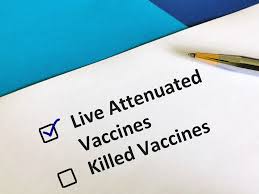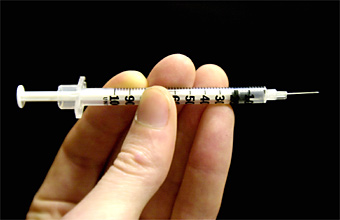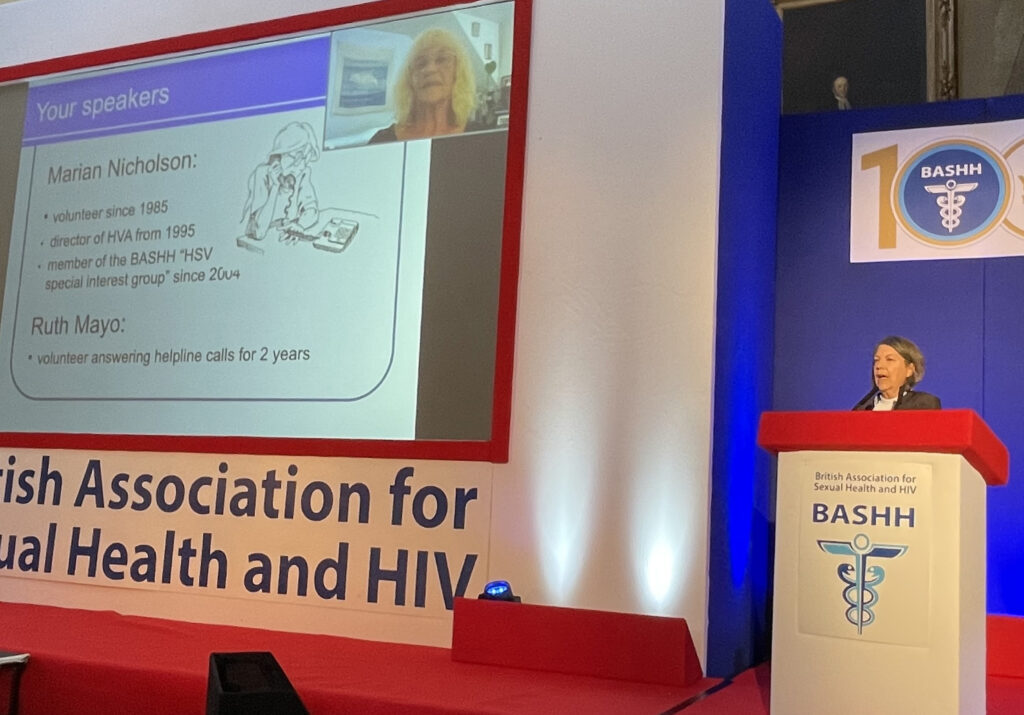If you have had the virus for a while, we expect you will have symptoms less often and more mildly. But we do get people calling our helpline who ask “Why have my herpes episodes got more frequent, now?” This is a fairly common question.
Continue reading Why has my herpes got worse?Author: Marian Nicholson
Why don’t I have my herpes on face and genitals?
A common question by callers on our helpline (0345 123 2305) is often “Why didn’t I catch herpes on my face and genitals? We did oral sex as well as regular sex. So surely I should have seen symptoms in both places instead of only on my genitals.”
We have not found any medical papers on this topic, although “having herpes on genitals as well as face” is something that is mentioned in reported case histories of individual patients.
Two possible reasons that I have thought up:
Continue reading Why don’t I have my herpes on face and genitals?Are they working on a cure for herpes?
You may see ‘Are they working on a cure for herpes?’ on forums and in internet questions.
The answer is a resounding “YES.” The medical world is well aware that there area many people who have too many recurrences. And some of them know how badly the ‘idea of having herpes’ affects society – especially in America. There are fortunes to be made…
Can we guess when a cure for herpes might be available? NO, WE CANNOT. There is no way to know when a breakthrough will occur. So, do not put your life “on hold” until they invent something new. Learn to live in harmony with the virus. Our resources will enable you to do just that.
New reports
Weekly, the HVA is sent links to newly published scientific articles which include the word ‘herpes’. We get between 23 and 156 each week. Some are about herpes varicella or herpes zoster – but plenty are about herpes simplex too.
Most papers report research in silico (computer based i.e. “in silicon”), or in vitro (“in glass” i.e. using cells growing in the laboratory). We occasionally report on these for the monthly updates our subscribers are sent.
Occasionally, the research reports working in vivo (in living organism) and this is when we start looking seriously at their work.
What kind of research is being done on on a cure for herpes?
Continue reading Are they working on a cure for herpes?Rational Vaccine trial, in UK
Update 21st June 2023 – TRIAL NOW CLOSED!
Nothing new to report on the Rational vaccine trial. They had thought they’d need to interview 200 people. But after they had collected the experiences of 60 volunteers, they considered that that was enough. These people were all people who had found that the antivirals did not suppress their symptoms and they were keen to try something different.
We were told that Rational Vaccines’ researchers would write up this report. But nothing has been published. The doctors who were briefing the patient advocates – our director Marian Nicholson in the UK and a New York patient advocate – have fallen silent.
We await the next stage of their research with interest. Perhaps they will actually inject people at some stage? We don’t know when.
Read the background to this research below…
No more volunteers needed, now.
Rational Vaccines has started their trial with a survey in UK. Anyone following the research that is being done into herpes simplex will be glad hear this. After this stage, they will move onto the actual injection stage…
We know that the possibility of a vaccine has long been hoped for. The research will find out, firstly, can the vaccine treat people having innumerable recurrences and, secondly, prevent uninfected people from being able to catch herpes simplex. This is a live attenuated virus vaccine – like the ones used to prevent chickenpox and shingles.
The Rational Vaccine company has started trials in the UK. These are based at the Royal South Hampshire Hospital in Southampton and at the Chelsea and Westminster Hospital in London.
However, the exact venue is not very relevant. For this stage, they are collecting information by phone or video calls from 200 people. People taking part will be asked the details about how many outbreaks they are having, how they treat them, how good they feel the treatment is. This will be to prove that there is a need for a better way of treating genital herpes. Then in due course, the researchers will choose some couple of dozen people to actually get the vaccine. (They now have more than 200 volunteers.)
To follow the Rational Vaccines trial news
To follow the Rational Vaccines trial news, and indeed news of other trials around the world, you can check back on the news page. Or subscribe for prompt alerts.

This page was published on 2-9-2022 and updated on 24-7-2023 and
Continue reading Rational Vaccine trial, in UKChild dies of ‘herpes’ – but not herpes simplex
BBC South East reports that “Raffy Holliday, from Deal in Kent, tested positive for the HHV6 strain in hospital, and he died in March,” but this was not herpes simplex: parents don’t need to be worried about this.
The reporters don’t explain that HHV-6 – commonly called roseola – is not ‘herpes’ in the usual sense. When anyone says ‘herpes’ people think of genital herpes. The reporters didn’t check to find that there are 9 different conditions caused by 9 different herpes viruses. Other well-known herpes viruses are chickenpox (HHV-3) and glandular fever (HHV-4).
Infections with human herpesvirus 6 (HHV-6) are very common. In fact, almost 100% of us will have encountered it. There are two types of HHV-6 (A and B) and the one Raffy had will have been HHV-6B, not herpes simplex. Roseola is common childhood disease expected to resolve without treatment. The child may have high fever for a few days, and a mild skin rash may develop. Sometimes, paracetamol or ibuprofen might be given.
But Raffy had leukemia. This means his immune system was not able to function in the normal way. Parents of children (who do not have such a serious condition) do not need to worry if their children develop roseola. They will be well in a few days or so…

Mothers having C-section – two deaths
“Mothers who need to have C-sections (for any reason) should not be alarmed by these tragic rare cases – a repeat is almost impossible”, says Herpes Viruses Association
For a woman to be infected with herpes simplex during a Caesarean-section is one of the rarest possible medical accidents. For it to happen twice in the same geographical area required a unique set of circumstances that are unlikely to be repeated. Lessons have been learned and treatment guidelines will be updated to prevent another similar tragedy.
The Herpes Viruses Association was shocked to hear that two women died from internal herpes simplex infections following disease transmission via C-section. We extend our condolences to the families affected.
Herpes is common – for most it is a minor skin condition
Herpes simplex (HSV) infections are common and in almost every case are caught during direct skin on skin contact. It is almost unheard of for these viruses to be caught during any kind of medical procedure and strict protocols are adopted to prevent this.
Herpes simplex is universal. More than two thirds of the world’s population carry the most common type, known as HSV-1[1] which places it close behind chickenpox as an almost universally acquired virus in humans. The other type is HSV-2.[2] Either type may be caught facially (cold sores) or genitally (genital herpes). It is also possible for either type to infect the hand or finger. This is called a herpetic whitlow and is seen less often than infection in other parts of the body.
More than half of pregnant women will have come into contact with HSV-1 before
conceiving. Their babies, from month 7 onwards, will acquire all their mothers’ antibodies which will protect them during birth and for several months.
If a herpes simplex infection is suspected in either a mother or her baby, prompt use of antiviral treatment should ensure a positive outcome.
In the tragic cases in Margate and Ashford, Kent, neither woman had a prior HSV-1 infection. This means that neither of them had herpes simplex antibodies. This made them both vulnerable to the accidental internal acquisition that turned out to be fatal.
Why was a common cold sore infection fatal in these cases?
Herpes simplex is normally a virus that infects skin and nerve cells. Typical symptoms are painful skin blisters and sores that make diagnosis straightforward. These women were infected internally, so there were no observable symptom. Therefore, the virus was able to spread without affecting the skin.
Without the telltale blisters on the skin, herpes simplex was not suspected, and the antiviral treatment was not given.
Future improvement to guidelines
The Herpes Viruses Association is pleased to learn that the Royal College of Obstetrics and Gynaecology is going to recommend treatment with antiviral medication for any ‘mysterious’ illness in mother or baby. This is a highly safe precaution and should prevent any similar tragedy in the future. See their pregnancy-with-herpes leaflet.
– ENDS –
NOTES TO THE EDITOR
The Herpes Viruses Association exists to promote better mental and physical health with regard to the family of herpes viruses. Its aims are:
- To provide information to the public, to medical professionals and to the media.
- To encourage the development of new treatments for herpes simplex.
- To tackle stigma and the unnecessary trauma associated with the condition.
References:
1. WHO report on herpes simplex type 1: https://journals.plos.org/plosone/article?id=10.1371/journal.pone.0140765
2. WHO report on herpes simplex type 2: https://www.scielosp.org/article/ssm/content/raw/?resource_ssm_path=/media/assets/bwho/v86n10/a17v8610.pdf
For more information contact Marian Nicholson MBE, Herpes Viruses Association 02076079661 or [email protected]
Does the shingles vaccine help with herpes?
The question “does the shingles vaccine help with herpes simplex” is perhaps relevant. Herpes zoster is the medical name for shingles, or it can be called humanherpes virus ‘type 3’. It is enough like herpes simplex, that it is treated with aciclovir or other antiviral drug. If you do think you may have shingles, it is important to get the drug for shingles very quickly, within 3 days. Only prompt treatment will help control the duration of symptoms.
Shingles is the name for a recurrence of chickenpox (herpes varicella). Following infection, chickenpox virus remains in the body, hiding in neural ganglions. Shingles can happen when you are run down, ill, stressed, or following a physical or emotional trauma (a fall or the loss of a loved on). Although chickenpox affected the whole body, luckily shingles just appears in one small area, usually the back or chest. See more on our Shingles Support Society website.
A vaccine for shingles, Zostavax, is been provided to people in their 70s for the last ten years. This is because in older people the is a greater risk that nerve pain will continue after the shingles blisters have cleared up. So plenty of people who get repeated herpes simplex symptoms will have benefitted from Zostavax. If it does help control herpes simplex virus, these people will have noticed that their recurrences have stopped.
Some people have found it helps
And we have indeed had people tell us that following the shingles vaccine, their herpes simplex symptoms are noticeably less frequent (or have stopped). Now, that could just be coincidence. We know that over time, recurrences are expected to become less frequent. But it is nice to think that the shingles (herpes zoster) vaccine is helpful against herpes simplex.
Let us know (at [email protected]) if you notice that you are having more outbreaks since Zostavax, or fewer…
In any case, if you are offered the shingles vaccine – take it! 
Herpes helpliners’ talk at conference
Herpes helpliners were invited to talk to the doctors at the annual conference of the British Association of Sexual Health and HIV in Sheffield in 2022.
Our topic was “How to help your patients: you need to de-Google them.” The talk was presented as a chat between two helpliners. You can see the text we prepared to train ourselves – and the slides we used at the same time on the attached page.
Naturally, on the day, we didn’t read from this script. But because we had rehearsed several times, the talk followed this flow…

Eyesight: getting a ‘gritty feeling’ could be a ‘serious’ eye condition – do not ignore
A story in the Daily Express on 2nd August 2022 described how a facial infection can reactivate in the eye. This ocular herpes needs to be treated.
“Ocular herpes usually occurs when a previous infection with the virus reactivates and spreads to the eye. Most people will catch the herpes simplex virus as children, but will not notice it as there are often no symptoms.”
Continue reading Eyesight: getting a ‘gritty feeling’ could be a ‘serious’ eye condition – do not ignoreHow herpes got its stigma
“It is easier to fool people than to convince them that they have been fooled.” – Mark Twain
You can download a PDF of this article.
An article by Nigel Scott
Let’s look at how herpes got its stigma:
For anyone in the twenty first century it is hard to believe that there was a time when ‘herpes’ was not a stigmatised and feared condition. But this is true. Less than forty years ago genital herpes was largely ignored. Newly diagnosed patients were not made to feel that a common skin condition had just ended their chance of having future relationships. Doctors knew that they were simply dealing with the manifestation of the common facial cold sore on a different site and they treated it appropriately. In the early 1980s things changed. How and why did this happen?
Continue reading How herpes got its stigma



